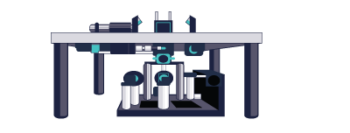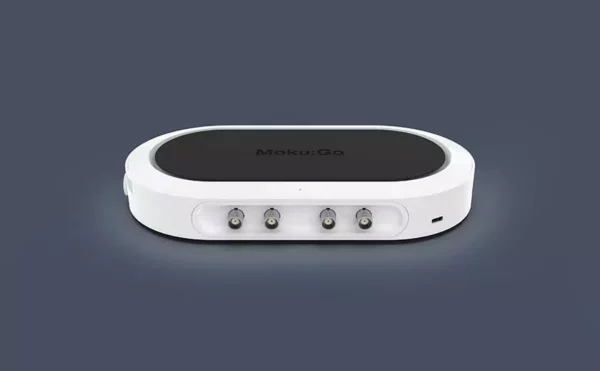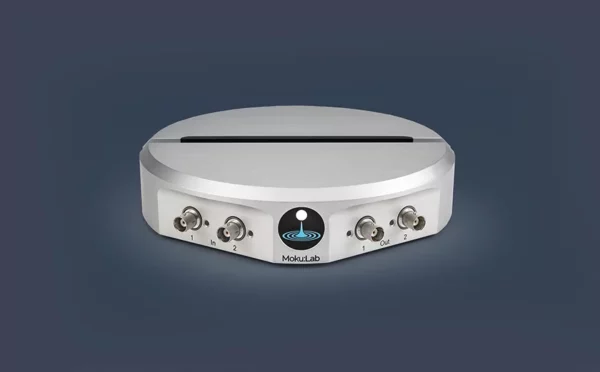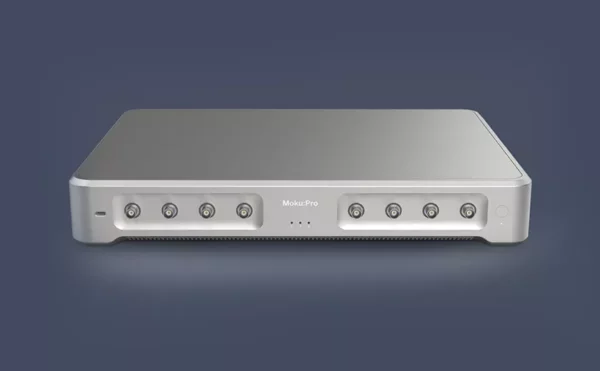PID Controller
With the Moku PID Controller, it’s easy to leverage up to four fully configurable PID controllers to simplify system feedback and stabilisation. Deploy them in applications requiring both low and high feedback bandwidths, such as laser temperature and current stabilisation.
For maximum flexibility, you can also utilize the Moku PID Controller as a lead-lag compensator by saturating the integral and differential controllers with independent gain settings.
View system responses in real time with the Moku PID Controller
Quickly design your control system’s frequency response using the interactive Bode plot. With built-in Oscilloscope probe points for signal monitoring throughout the signal path, you can adjust parameters and view results simultaneously.
Below is the Moku PID Controller’s user interface showcasing the real-time response and some of the key features explained below:
Key Features of the PID Controller:
Customise your system response with an advanced multi-section PID builder
The Moku PID Controller includes single or double integrators and differentiators with low- and high-frequency gain saturation. Configure proportional (P), integral (I), differential (D), double-integral (I+), integral saturation (IS), and differential saturation (DS) gain profiles.
Test smarter with a block diagram view of the DSP workflow
Enable up to four independent, fully real-time configurable PID controller paths with optional output voltage limits. For even more flexibility, you have the option to combine input signals with the control matrix.
Run multiple instruments simultaneously in Multi-instrument Mode
Four controllers isn’t enough? Get up to eight independent controllers by deploying multiple Moku PID Controllers in Multi-instrument Mode. Route connections to the analog inputs and outputs, or digitally connect instruments together for lossless instrument cabling.
Engineered to work seamlessly with your preferred APIs
API integration with Python, MATLAB, and LabVIEW allows straightforward automation of your Moku device in complex setups or for repetitive tasks. Save your measurements, screenshots, traces, and other settings locally or to your preferred cloud app. You can also send work to yourself or colleagues within the Moku app.
Applications:
- Feedback and control systems
- Laser frequency stabilisation
- Pressure, force, flow rate, and other controls
- Scan heads/sample stage positioning
- Temperature regulation



































